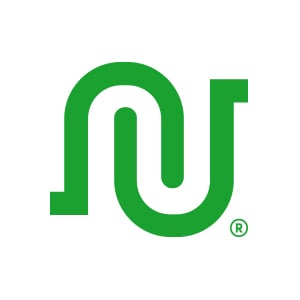Do neighbors really lend out cups of sugar? Homeowner survey reveals what make a good neighbor
Knocking on a neighbor’s door and asking to borrow a cup of sugar has always been the textbook example of neighborly behavior. Outkast’s Andre 3000 even references it in a lyric from the 2003 hit “Hey Ya”—“lend me some sugar, I am your neighbor!” But do people actually do this, or does the “cup of sugar standard” harken back to a time before grocery delivery apps or easy access to supermarkets?
It would appear that neighbors are still willing to ask each other for baking ingredients in a pinch or for help in other ways. According to a survey conducted online by The Harris Poll and commissioned by neighborhoods.com, 53% of homeowners aged 25+ who have neighbors are likely to ask them for a “cup of sugar” or borrow something or ask for help from those who live near them.

The survey dives into other statistics about neighbors, including what qualities describe a “good neighbor,” if people actually know their neighbors’ names, and if neighborly behavior varies by age, income, or gender. In honor of National Good Neighbor Day (Saturday, Sept. 28), let’s get to know your modern neighbors.
Homeowners May Be on a First-Name Basis with Neighbors—and That’s It
Nearly half of homeowners age 25+ who have neighbors (47%) are not likely to ask for a cup of sugar or any form of help from a neighbor. But in general, doing things for neighbors—like the lending a cup of sugar example—falls behind other qualities that makes a good neighbor.

It seems the best way to be a good neighbor, according to many homeowners aged 25+, is keeping up appearances. When asked to describe what qualities make a good neighbor, homeowners aged 25+ picked “is friendly to neighbors” (79%) as the top quality of a good neighbor. Other choices include “maintains a clean yard” (73%), “maintains a nice house” (62%), “is quiet” and “is friendly to pets” (both 56%). “Does things for other neighbors” (54%), “regularly talks to other neighbors” (51%) and “knows other neighbors’ names” (47%) are other qualities that make a good neighbor according to American homeowners aged 25+. Homeowners aged 65+ (66%) are more likely to say “doing things for other neighbors” describes a good neighbor than those aged 25-54 (47%).

Among American homeowners aged 25 and older who have neighbors, 93% know all/some of their names, but nearly 3 in 10 (29%) interact with their neighbors less than once a month.
That’s not to say relationships aren’t valued, though. Fifty-eight percent of American homeowners aged 25+ say the prospect of new relationships or friendships with neighbors was important to them when deciding to buy their home, while 42% considered this unimportant.
Age and income could be a factor here. For example, homeowners age 25-54 are more likely to say the prospect of new relationships or friendships with neighbors was important when deciding to buy their home than homeowners 65-and-older (62% vs. 49%). And homeowners aged 25+ with a household income of $100K+ are more likely to say the prospect of new relationships or friendships with neighbors was important to them when deciding to buy their home than those with household incomes of less than $75K (63% vs. 52%).
Want to get to know your neighbors?
If you want to get to know your neighbors beyond their first names and state of their homes on this Be a Good Neighbor Day, we rounded up a dozen ways to meet your neighbors beyond asking for sugar (though there is a pie involved).
Methodology
This survey was conducted online within the United States by The Harris Poll on behalf of neighborhoods.com from September 10-12, 2019 among 1,179 U.S. adult homeowners ages 25 and older, among whom 1,168 have neighbors. This online survey is not based on a probability sample and therefore no estimate of theoretical sampling error can be calculated. For complete survey methodology, including weighting variables and subgroup sample sizes, please contact neighborhoods.com.

